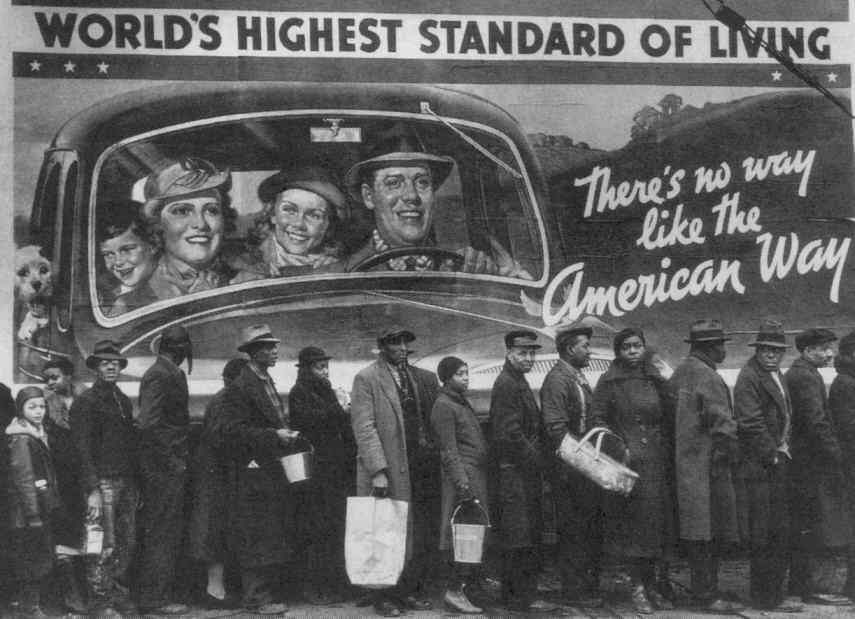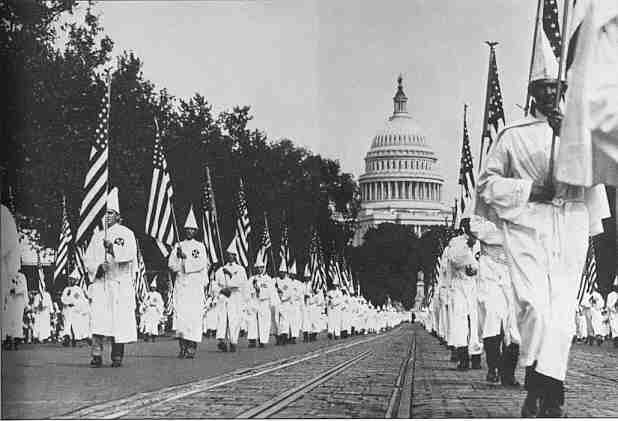



 |
| The popularity of the new jazz culture had positive and negative consequences within American society in the 1920s. Sociologists lend the term of "bottom culture" to the popular or folk culture of a minority group. The evolution of jazz music and culture into a societal revolution elevated aspects of African American popular culture for the first time in the history of the United States. The culture of a minority became the desire of the majority. Although jazz aided in the elevation of the status of African Americans, there was a very serious white reactionary movements to this success. Some white musicians denied that jazz was African American by origin, instead choosing to label the Original Dixieland Jazz Band as the genesis of jazz music. The Ku Klux Klan grew to record highs in the 1920s, and several other white supremacist groups were formed. |
| Although many classical musicians believed that jazz was not to be evaluated on the same level as Puccini or Chopin, jazz music did receive a certain amount of respect from literary figures and classical musicians. From the wild beat to the crazy improvisation, jazz music intrigued many people from higher echelons in American society. With the elevation of this distinctly African American art form, came a respect and dignity that African Americans had often been deprived of. |
 |
In The Twenties: Fords, Flappers, and Fanatics, Mowry states that "As the racial conflict between white and Negro mounted during the early years of the 1920s, radical Negro movements both in the North and the South grew rapidly" (p. 129). These groups began to gather power, eloquent representatives, and sympathetic supporters. Across the country, race riots and strikes by African American workers inflamed the rage of white supremacist groups throughout the country. |
| In
1919, white supremacists gained control of New Orleans, Louisiana
( the birth place of jazz). For many years, Creoles had held positions
of power and respect in the city, but frustrated white businessman grew
tired of having to compete with highly educated Creoles for their livelihood.
A series of new laws made New Orleans a very difficult place for any man
or women with African American blood to prosper. The new laws restricted
African Americans, and sent many fleeing to the North. This foreshadowed
a similar reaction to the success of African Americans nation wide.
With the increased respectability, African Americans began to seriously
protest the unjust treatment that they received.
In this way, Jazz also aided in the first steps toward equal rights for African Americans. |
| In
the 1920s, the Ku Klux Clan grew to over four million members. Enraged
by the demand for fair wages and the popularity of African American Jazz
music with white youths, the Klan decided to go on a nationwide campaign
to "Americanize Americans." The Klan then widened their scope, proclaiming
that all Catholics, Jews, Negroes, and recent immigrants were not true
Americans, and were a problem to be confronted by the nation. In an article
printed in The North American Review in March of 1926, the Klan's
Imperial Wizard, Hiram Wesley Evens stated, "We will not permit him (the
Negro) to gain sufficient power to control our civilization. Neither
will we delude him with promises of social equality which we know can never
be realized (p.33).
|
 |
| The Klan's movement railed against the urban popular culture, Jews, Immigrants, Catholics, and various other groups and associations. By going on a nationwide tirade about the evils of Catholicism and popular culture, the Klan managed to alienate a large percentage of people that may have shared their views of white supremacy. By expanding the scope of their "vision," the Klan planted the seeds of its eventual disintegration. The Klan was relatively dormant until the controversy of equal rights reached its zenith in the 1960s. The absorption of African American Jazz music and culture into society in the 1920s exacerbated the growing racial tensions in the post war period, but it also paved the way for the Equal Rights Movement in the 1960s. |

